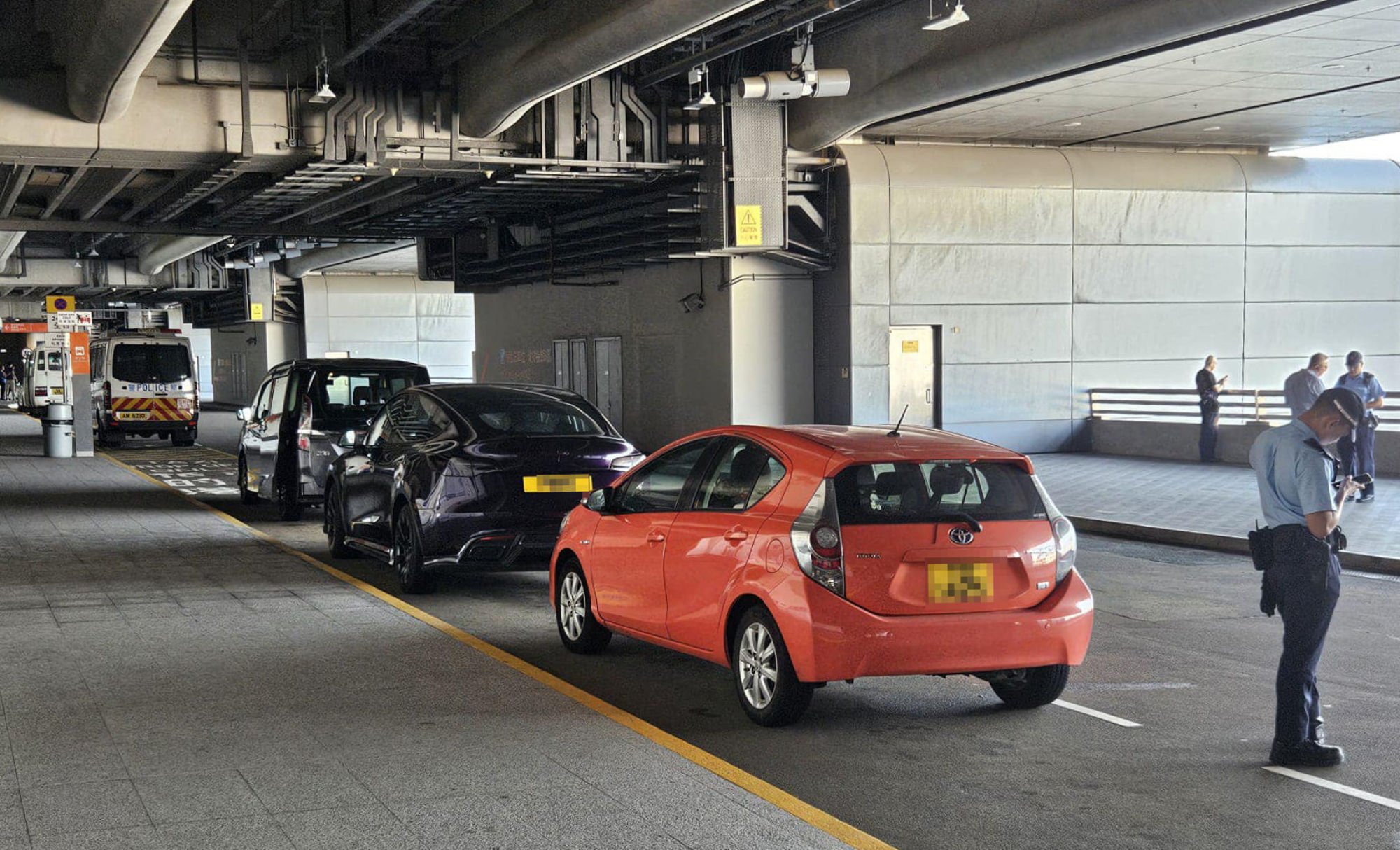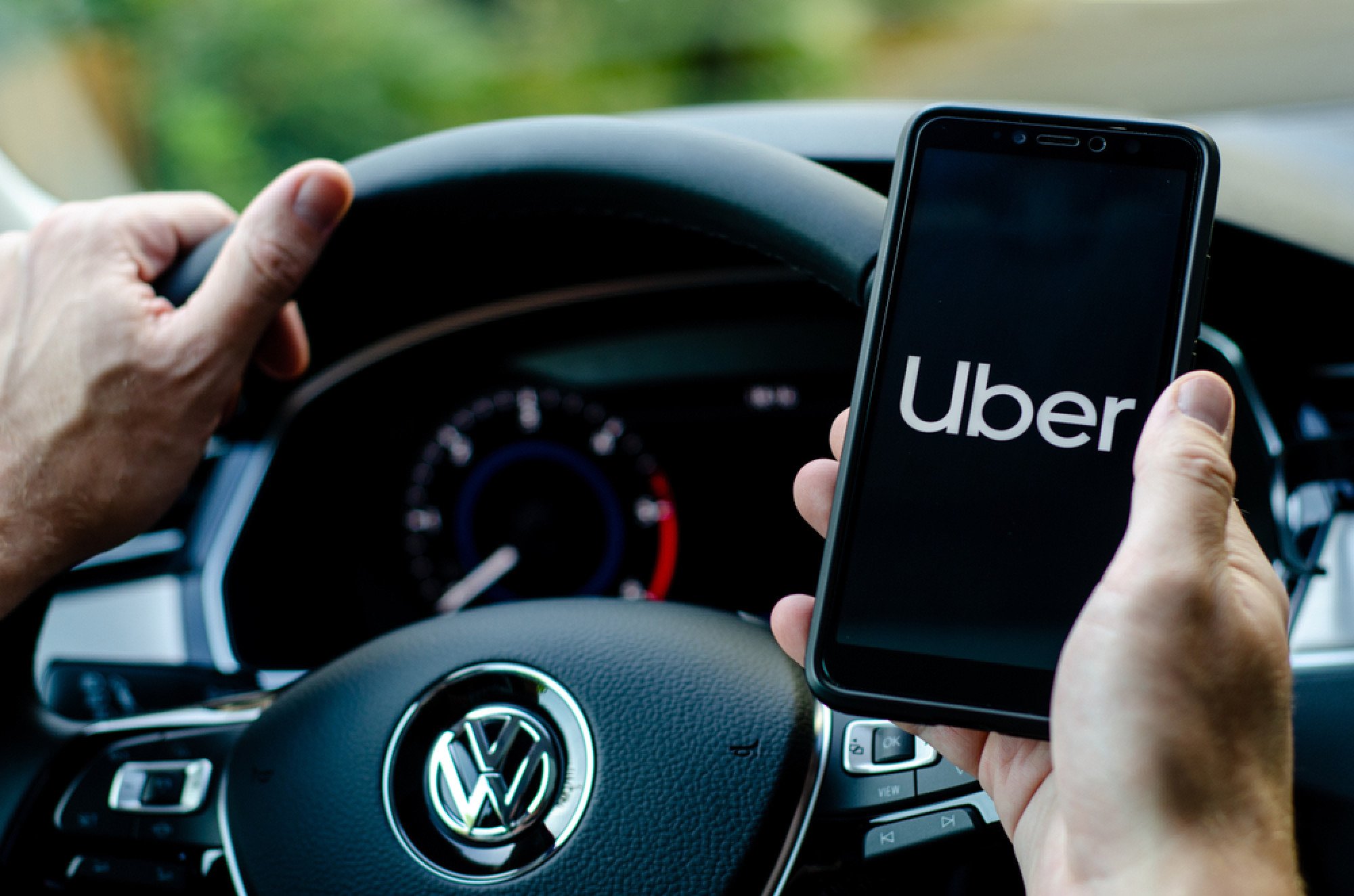
Explainer | Why are Hong Kong taxi drivers going ‘undercover’ to target Uber and what’s behind their latest clash?
- Operation to try to bust illegal ride-hailing services has purportedly been run by Hong Kong Taxi Council ‘agents’ who lead Uber drivers to police
- Drivers say they are being unfairly targeted by government crackdowns, but Hongkongers may not be on their side amid complaints over service quality
A new wave of tension between Hong Kong taxi and Uber drivers has erupted in the past week, with cabbies mounting their own “undercover” operations to report illegal ride-hailing services to police.
The Post unpacks the latest developments, as well as the history of troubles between Uber and the city’s taxi industry.
1. What’s the latest conflict about?
Taxi drivers launched an “undercover operation” this month by posing as Uber passengers and asking their drivers to stop at places where they had called police.
Purportedly led by the Hong Kong Taxi Council, the “agents” filmed their car rides to places such as the Kai Tak Cruise Terminal and posted them on social media. Seven cases had been reported on Thursday alone and six more on Saturday, according to industry representatives.
In return, calls by internet users to take retaliatory action gained momentum ahead of the weekend on forums such as Facebook and the Reddit-like LIHKG.
Suggestions included reporting every illegally parked taxi seen on the street, or deploying tactics to inconvenience taxi drivers such as asking for exact change for fares.
2. Is Uber illegal in Hong Kong?
Uber has been operating in Hong Kong since 2014 but its legal status has long been in question due to the city’s lack of legislation solely for the regulation of ride-hailing apps.
But generally, it is against the law for private vehicles to accept customers without a hire-car permit from the Transport Department.
First violations incur a maximum penalty of a HK$10,000 fine and six months in prison, while subsequent convictions can lead to one year in jail and a fine of HK$25,000.
Uber does not regulate its drivers over the use of permits.
Two years later, 24 Uber drivers who were found guilty of carrying passengers for hire or reward lost their last-ditch appeals to Hong Kong’s top court. The case stemmed from the conviction of 28 drivers, the largest group so far, who were fined between HK$3,000 and HK$4,500 in 2018.
In matters of insurance, while the company has bought a Motor Vehicles Insurance (Third Party Risks) Ordinance for all of its drivers, the lingering legal doubts have also brought into question the legitimacy of its insurance coverage.

3. Why are taxi drivers so upset?
A number of events have put the battle between taxis and Uber in the spotlight recently.
Ng Kwan-sing, vice-chairman of Hong Kong Taxi Council, also complained of the government’s lack of action against Uber.
“Why can’t authorities just come out and crack down hard on Uber, since they have already said it is illegal?” he said.
“Some people are even saying, if the government really wanted to fix things, they wouldn’t be acting so soft.”
The Executive Council also approved earlier this week a HK$2 (25 US cents) rise in flag-fall rates for taxi trips.
4. Why is Uber still popular?
Despite legal issues, Uber remains a popular mode of transport for Hongkongers.
Customers have said they prefer Uber for the convenience, safety and better service, with electronic payment on offer.
Some noted taxi drivers would also complain about, or even refuse to go to, destinations that they felt were too close, or found ways to overcharge passengers.
Stories by tourists on social media platforms, such as the popular mainland Chinese platform Xiaohongshu, about taxi drivers speeding recklessly, claiming exorbitant extra fees from visitors and being rude have also fuelled the narrative of bad service.

5. How do other jurisdictions handle it?
Many other places have been through teething issues with their local taxi industries when ride-hailing apps such as Uber were first introduced.
In Singapore, basic regulatory frameworks were introduced as early as 2014 after Uber entered its market the previous year.
While Uber has retreated from Southeast Asia since 2018, similar platforms such as Grab are fully legal, with the requirement that non-taxi drivers obtain a Private Hire Car Driver’s Vocational Licence.
Over in Taiwan, Uber also went through years of obstructions by the taxi industry with the government caught in between, before authorities in 2019 finally laid out clear regulations dubbed the “Uber clause”, defining the difference between vehicle rental services and taxis, and ensuring drivers adhered to relevant laws.
6. What has the government done to resolve the conflicts?
To tackle accusations of bad service, the government proposed a bill to introduce premium taxi fleets promising higher quality services, which was passed by the Legislative Council in December.
Operations have also been conducted to tackle overcharging, especially towards tourists and those travelling to and from higher-risk places such as entertainment district Lan Kwai Fong.
A citywide taxi strike was avoided in November after industry representatives said authorities gave promises of a crackdown on unlicensed ride-hailing services, with a government proposal to introduce stricter penalties on unlicensed drivers expected later this year.
